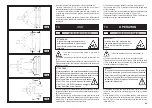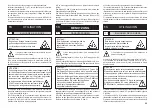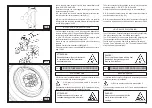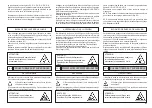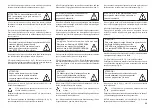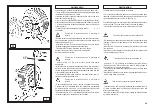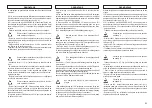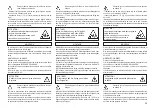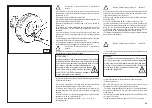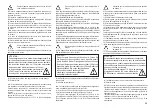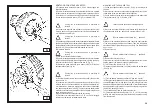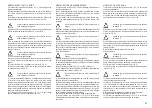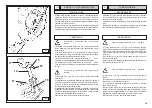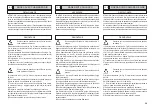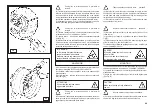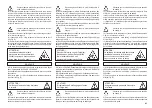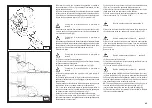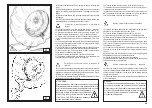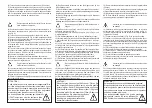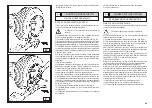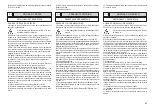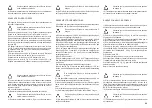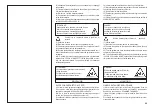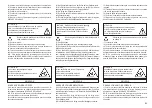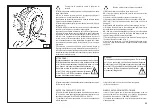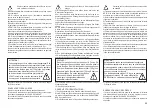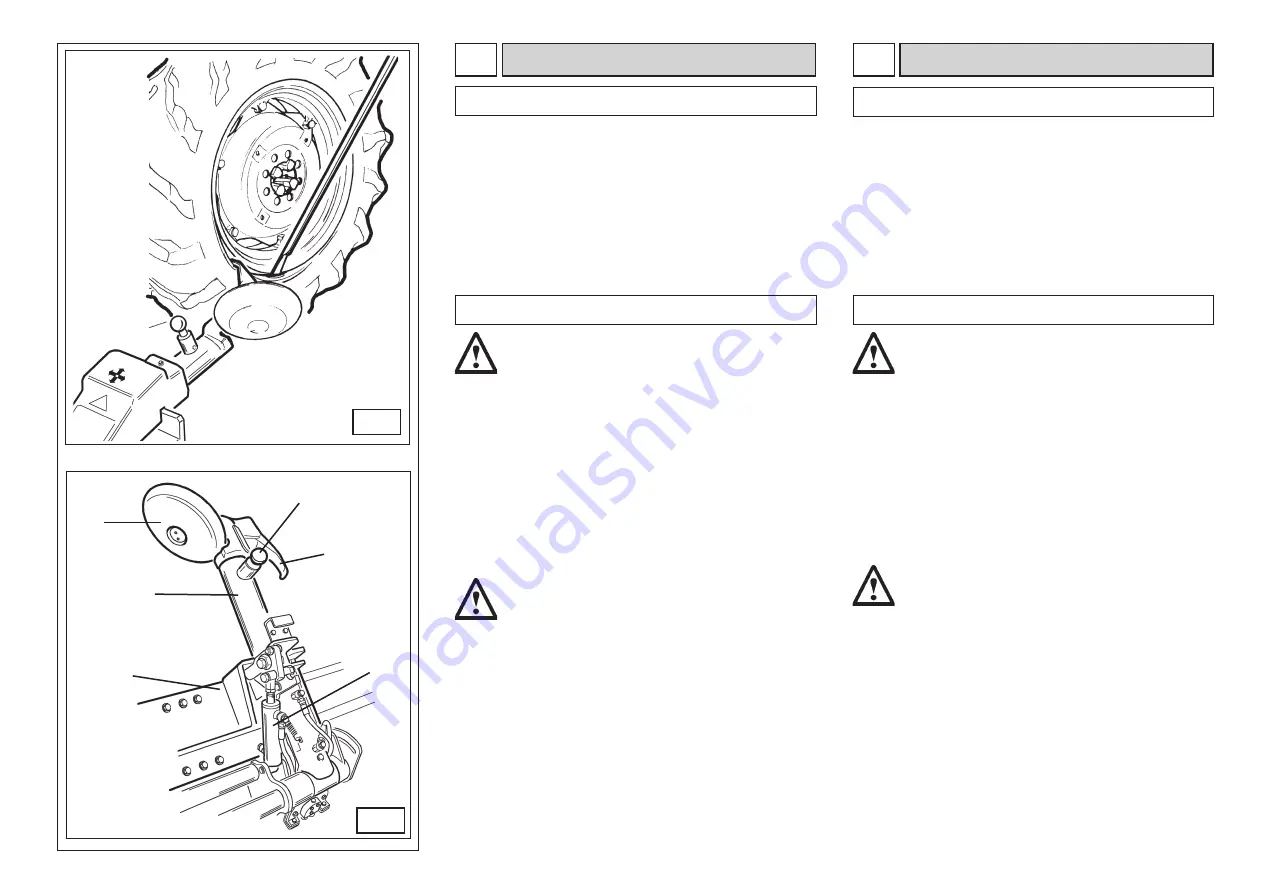
38
P
13.3
RUOTE CON CAMERA D'ARIA
STALLONATURA
13.3
TUBED WHEELS
BEAD BREAKING
WARNING: Unscrew the bush which fixes the valve when deflating
the tyre so that the valve, coming in the inside of the rim, is not an
obstacle during bead breaking.
Follow all the steps described previously for bead breaking tubeless
tyres.
With tubed tyres, however, stop disk movement as soon as the bead
has loosened to avoid damaging the tube inflation valve.
ATTENZIONE: Quando si sgonfia la ruota è necessario svitare la
ghiera che fissa la valvola in modo che, quest'ultima, rientrando
all'interno del cerchio, non costituisca ostacolo durante la stallonatura.
Procedere alle operazioni di stallonatura agendo esattamente come
descritto per le ruote Tubeless.
Nel caso di ruote con camera d'aria è però necessario interrompere
l'avanzamento del disco stallonatore immediatamente dopo il distacco
del tallone per evitare possibili danni a valvola e camera d'aria.
1) Ribaltare il braccio porta utensile (14, Fig. D) in posizione di fuori
lavoro, traslarlo sul lato esterno della ruota e riagganciarlo in posi-
zione di lavoro.
2) Ruotare l'autocentrante e contemporaneamente fare avanzare
l'utensile a becco (18, Fig. D) inserendolo tra cerchio e tallone fino a
che quest'ultimo si sarà agganciato all'utensile.
3) Allontanare di circa 4-5 cm. il cerchio dall'utensile in
m o d o
da evitare l'eventuale sgangio del tallone dall'utensile stesso.
4) Traslare verso l'esterno l'utensile a becco in modo da portare
il suo punto rosso di riferimento in prossimità del bordo esterno del
cerchio.
SMONTAGGIO
DEMOUNTING
Take the mobile control unit to work
position C.
Portarsi con la colonnetta mobile in posizione di
lavoro C.
1) Tip the tool carrier arm (14, Fig. D) to its non-working position.
Move it to the outside plane of the wheel and rehook it in this position.
2) Rotate the wheel and at the same time move the hook tool (18,
Fig. D) forward inserting it between rim and bead until it is anchored
to the tool.
3) Move the rim 4-5 cm from the tool taking care that it does not
unhook from the bead.
4) Move the hook tool towards the outside until the red reference dot
is by the outside edge of the rim.
Portarsi con la colonnetta mobile in posizione di
lavoro B.
5) Insert lever (see Fig. P) between rim and bead at the right of
the tool.
6) Press down on the lever and lower the wheel to bring the edge of
the rim about 5 mm from the hooked tool.
7) Turn the wheel anticlockwise pressing down on lever until the
bead is completely off.
8) Move the tool carrier arm to its non-working position. Lower the
spindle until the tyre is pressed down against the platform . As the
platform is moved slightly towards the outside, the tyre will open a
little and thus create enough space to remove the inner tube.
9) Remove the inner tube and lift the wheel back up.
D
Take the mobile control unit to work
position B.
5) Inserire la leva (vedi Fig. P) tra cerchio e tallone sulla destra
dell'utensile.
6) Mantenendo la leva premuta abbassare la ruota fino a portare il
bordo del cerchio ad una distanza di circa 5 mm. dall'utensile a becco.
7) Girare la ruota in senso antiorario mantenendo premuta la leva
fino alla completa fuoriuscita del tallone.
8) Allontanare il braccio porta utensile in posizione di fuori lavoro.
Abbassare l'autocentrante fino a premere la gomma sulla pedana
mobile che, avanzata leggermente verso l'esterno, creerà lo spazio
necessario per l'estrazione della camera d'aria.
9) Estrarre la camera d'aria quindi risollevare la ruota.
18
14
13
19
17
15
Summary of Contents for S 560
Page 64: ...64 SCHEMA ELETTRICO SCHEMA ELECTRIQUE ELECTRIC DIAGRAM SCHALTPLAN 1...
Page 65: ...65 SCHEMA ELETTRICO SCHEMA ELECTRIQUE ELECTRIC DIAGRAM SCHALTPLAN 2...
Page 66: ...66 SCHEMA ELETTRICO SCHEMA ELECTRIQUE ELECTRIC DIAGRAM SCHALTPLAN 3...
Page 67: ...67 SCHEMA IDRAULICO SCHEMA HYDRAULIQUE HYDRAULIC DIAGRAM HYDRAULIKPLAN...
Page 68: ......

